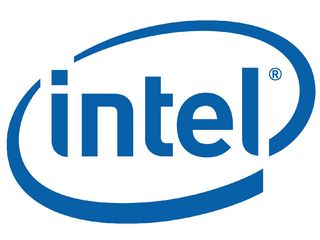Intel/McAfee Targets Embedded, Mobile Security
Intel explains why it acquired McAfee in a conference call to Wall Street investors.

Just two weeks after Intel finalized its acquisition of McAfee, the processor giant explained its reasoning for dumping nearly $8 billion USD into the purchase during a conference call with Wall Street analysts. Essentially the company plans to integrate McAfee's security technology into processors for embedded devices. There are also plans to provide cloud-based security services for mobile devices.
Renee James, an Intel senior vice president and general manager of the Software and Services group, went into greater detail, explaining that Intel wants to build security management capabilities directly into hardware. This would allow mobile and other devices to communicate in real time with cloud-based security services. "The services will provide up-to-date protection for the devices including detecting and blocking malware, authenticating users, and verifying IP addresses and Websites," James said.
Dave DeWalt, president of the now-wholly-owned but independent McAfee subsidiary, told Wall Street analysts that its security capabilities and visibility will be extended down to embedded devices including laptops, smartphones and tablets. This is especially important given that said devices could be used to access enterprise networks by hackers.
McAfee is also working with the Wind River subsidiary to integrate its security into Wind River's OS for embedded devices within ATMs, network gateways and other applications. DeWalt added that Intel could even develop embedded computers for printers, televisions and cars with McAfee's security solutions baked right in.
According to DeWalt, Intel doesn't want to just provide security as a layer on top of the operating system. Instead, the company wants to push the services "down below" on future Intel chips. This will supposedly help speed up and improve McAfee software performance. "The further you move security down the stack, the more visibility of the architecture you get," DeWalt said.
So why did Intel choose McAfee? Renee James said that Intel needed both security software and a complete service platform in order to build up its security business. Doing so from scratch would have taken up too much time and tons of cash to replicate the services McAfee had already established. Those include McAfee's popular security software and a security service cloud it had been working on for the last five years.
To learn more, eWeek covered the entire conference call here.
Stay on the Cutting Edge
Join the experts who read Tom's Hardware for the inside track on enthusiast PC tech news — and have for over 25 years. We'll send breaking news and in-depth reviews of CPUs, GPUs, AI, maker hardware and more straight to your inbox.
-
extremepcs Sweet! Now botched McCrappy updates will brick the device, not just crash Windows. I applaud the effort, but DO NOT trust McAfee after we lost hundreds of machines to their fowl up about a year ago.Reply -
pale paladin they better keep that shit away from me. not even McAfee enterprise is worth a damn. junk all junk.Reply -
I will not touch anything that is associated with McAfee, I have had more customers computers compromised running McCrapee software than every other Security Software combined, I will never-ever support them, even if Intel now own them, ever!Reply
trust me when I say I do not welcome this step by Intel, and it means me not using the products they produce using this setup to supply my customers! I simply do bnot trust McCrapee at all! -
rantoc Do we get paid for beta-testing as well as the reduced battery life by the resourcehoging of McAffe's several year "mature" software?Reply -
jkflipflop98 The people that run Intel are idiots. It's a good thing the core business is so strong or they'd run the company into the ground overnight.Reply
Most Popular


